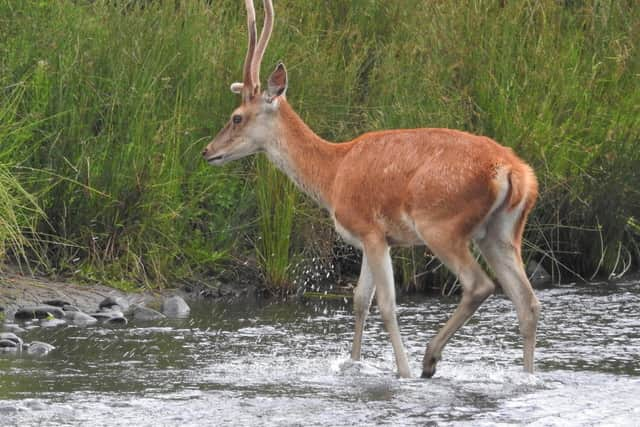Wildlife column: Deer watching tips in lockdown
and live on Freeview channel 276
Both muntjac and roe deer have been seen in Sheffield city centre and also increasingly in the surrounding urban fringe and nearby countryside.
In the Moss Valley woodlands, close to where I live in Norton, I have seen roe deer a couple of times and caught one fleeting glimpse of a muntjac. Head east down the M18 motorway towards and beyond Doncaster then both these species are easy to spot in fields along the way. Go west from Sheffield into the Peak District and the first species you are likely to see is the magnificent red deer. They actually occur in farmland and woodland between the city and the Peak, but the easiest place to spot wild red deer is on the Eastern Moors and specifically Big Moor.
Advertisement
Hide AdAdvertisement
Hide AdIf you want a good chance to get close to either red deer or fallow deer however, then Chatsworth Park is your best bet. Choose a day when fewer people are around or else either early or late in the day, and you are guaranteed good views.


At this time of year the red stags are growing their antlers and they are still clothed in soft ‘felt’; but that will soon be lost and the antlers honed ready for action.
By mid to late September the annual rut will be well underway but for now small groups of adult males need to feed up in order to get into peak condition. Once the rut starts in earnest then there is little time for niceties like eating!
The young stag was pictured at Chatsworth and crossing the River Derwent to join a herd of deer on the far side of the Park north-west of the house.
Advertisement
Hide AdAdvertisement
Hide AdThe main herd is still quite large and the males tend to form smaller social groups together. All this is about to change though as the dominant males begin to gather together groups of females and then seek to defend these against possible rivals.
*Professor Ian D. Rotherham, of Sheffield Hallam University, researcher, writer and broadcaster on wildlife and environmental issues.
To submit a column for consideration please e-mail the Telegraph team on [email protected].